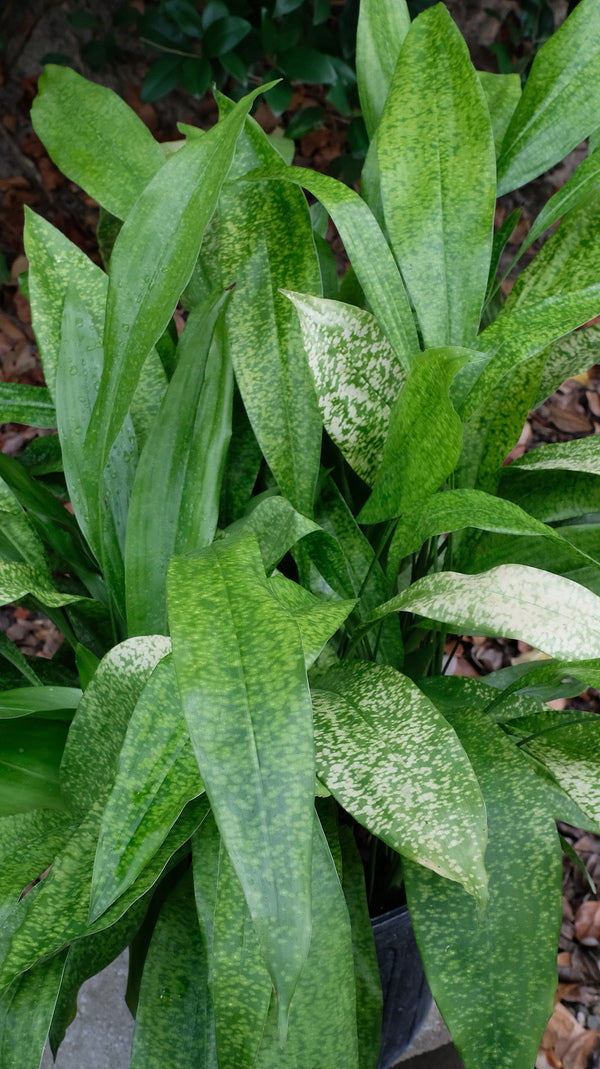Aspidistra subrotata 'Golden Shimmers'
Golden Shimmers Cast Iron Plant
Item #: 16073
Zones: 9a to 10b, guessing
Dormancy: Evergreen
Height: 20" tall
Origin: China, Thailand, Vietnam
Pot Size: 3.5" pot (24 fl. oz/0.7 L)
Aspidistra subrotata 'Golden Shimmers' is a 2025 Plant Delights/JLBG introduction of a truly exceptional form of the Southeast Asian Aspidistra subrotata, collected by the late Alan Galloway in 2012 in Vietnam's Ninh Binh Province. The 20" tall x 3' wide bird nest-like evergreen patch is composed of foliage with more spots than it has green leaf tissue. The spots emerge chartreuse, and brighten as the leaf ages. The bloodshot eye-like flowers gather at the leaf base in time for the winter holidays in December.
Maintenance:
Aspidistra are very low maintenance perennials. Each leaf can last up to 3 years, but after the second year, it will begin to show signs of aging and leaf degradation. For that reason, we recommend removing all old foliage regularly to retain the attractiveness of the clump. It's always disappointing to see large patches of cast iron plants in public spaces where it hasn't been properly maintained.
Growing Conditions:
Cast iron plants grow well in both moist and dry soils as long as the drainage is good. Aspidistra must be grown in shade, since their foliage will scorch if they are subjected to sun. In the jungles where they grow, they are often seen in very deep shade.
In containers, they make superb house plants. The common name cast iron plant speaks to their durability in less than ideal conditions. Regular moisture, including increased humidity when they are grown as house plants, keeps them from getting stressed and becoming susceptible to spider mites.
Garden Value:
The bold texture and upright form of cast iron plants is invaluable in the garden, since there few other plants with this form and texture. Many have amazing flowers, produced at the base of the foliage, often in the winter months. While these flowers are rarely noticed in the garden, they can be quite attractive in the home.

-
Other Attributes
Genus: Aspidistra
Flower Color: Purple/Lavender
Leaf Color: Spotted/Speckled
Bloom Time: Winter
Container Role: Thrillers
Garden Themes: Living Wall
Other: Deer Resistant Plants , Drought Tolerant Plants , Dry Shade Plants , Groundcovers , Medicinal Plants , Plant Delights Introductions , Plants from China , Rain Garden Plants , Salt Tolerant Seaside Plants , Tropical Looking Plants , Colored Foliage , Patterned Foliage , House Plants


